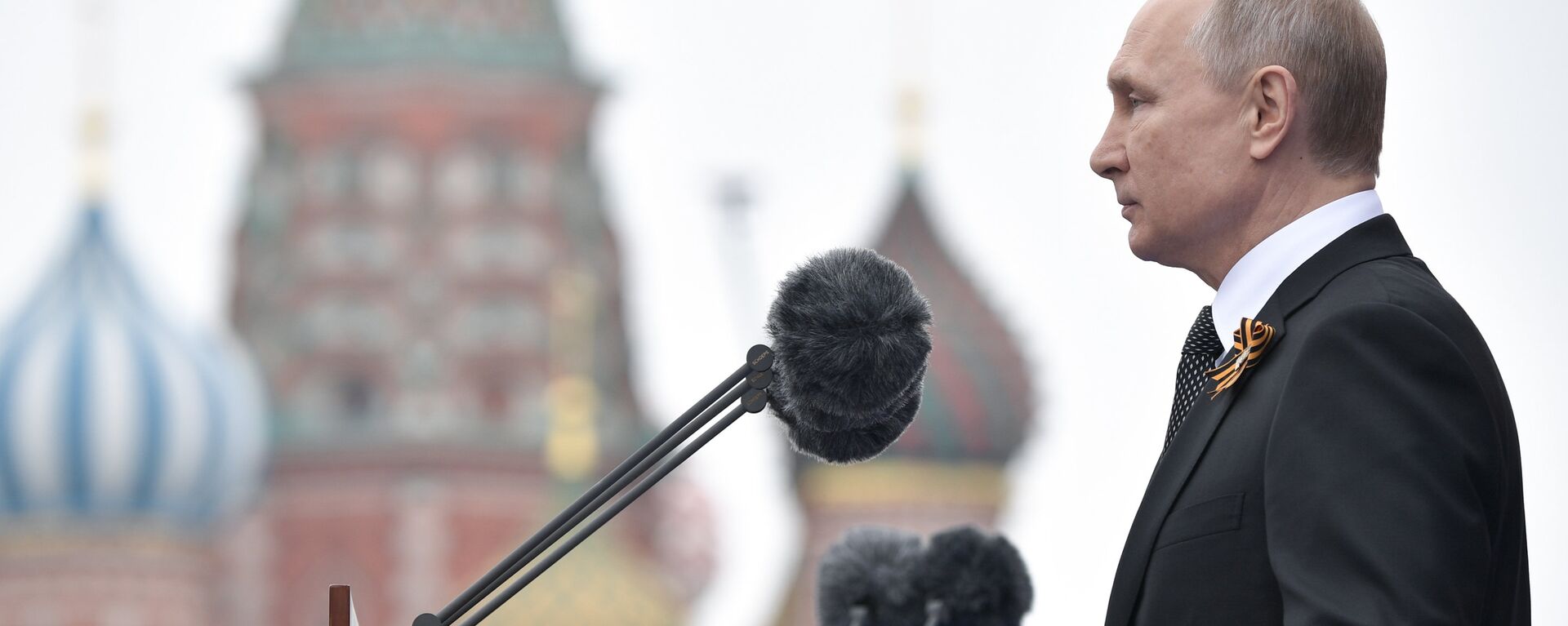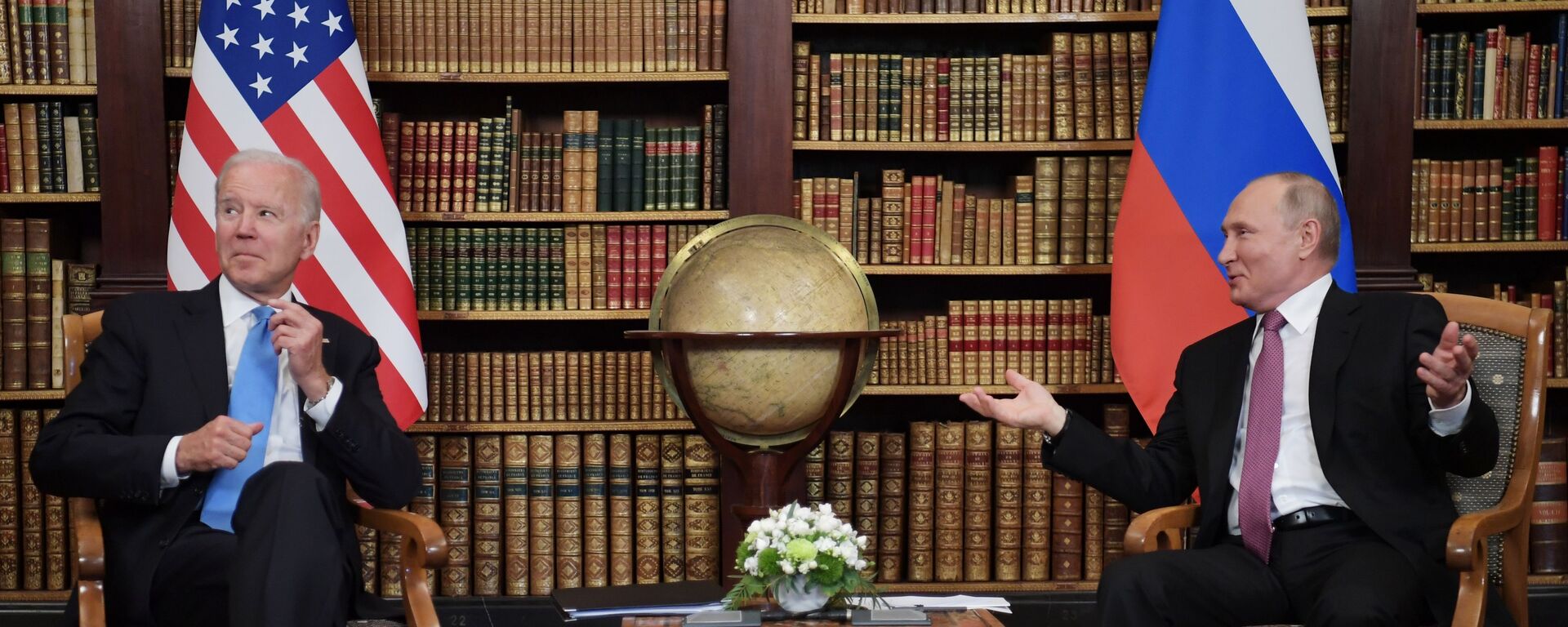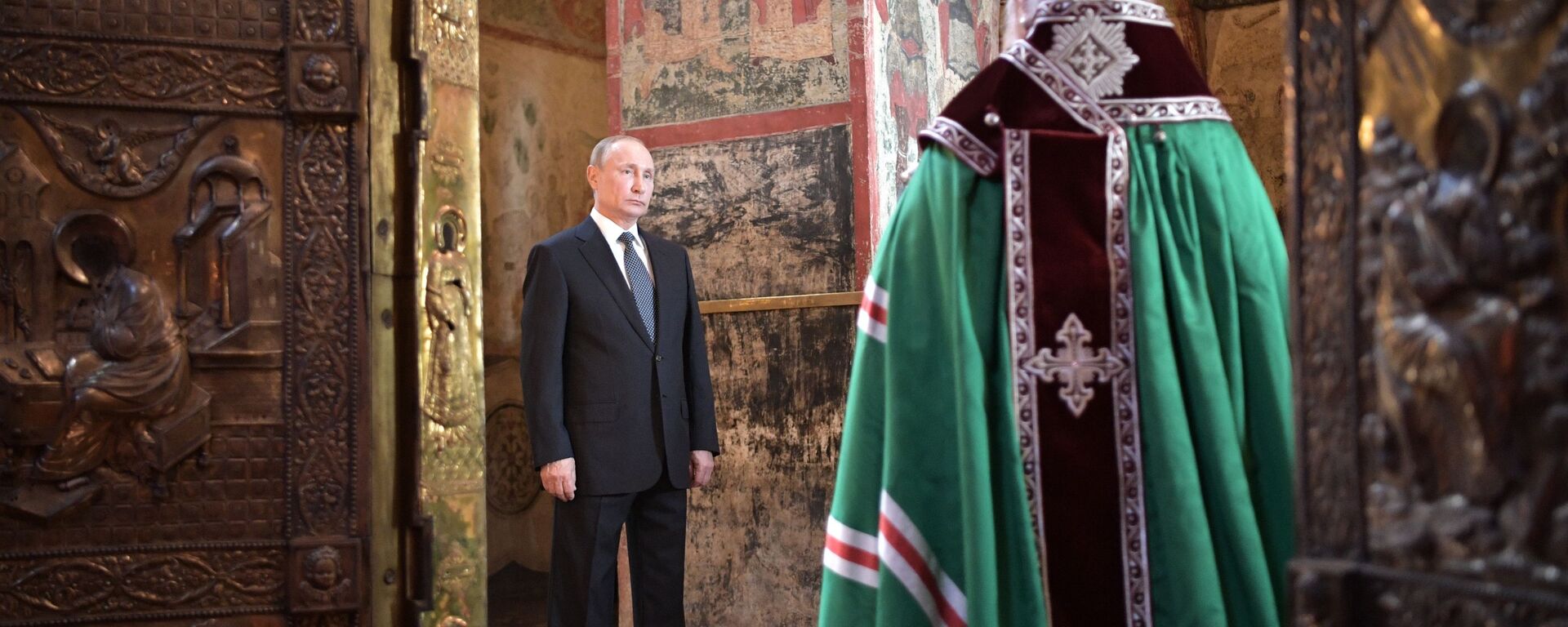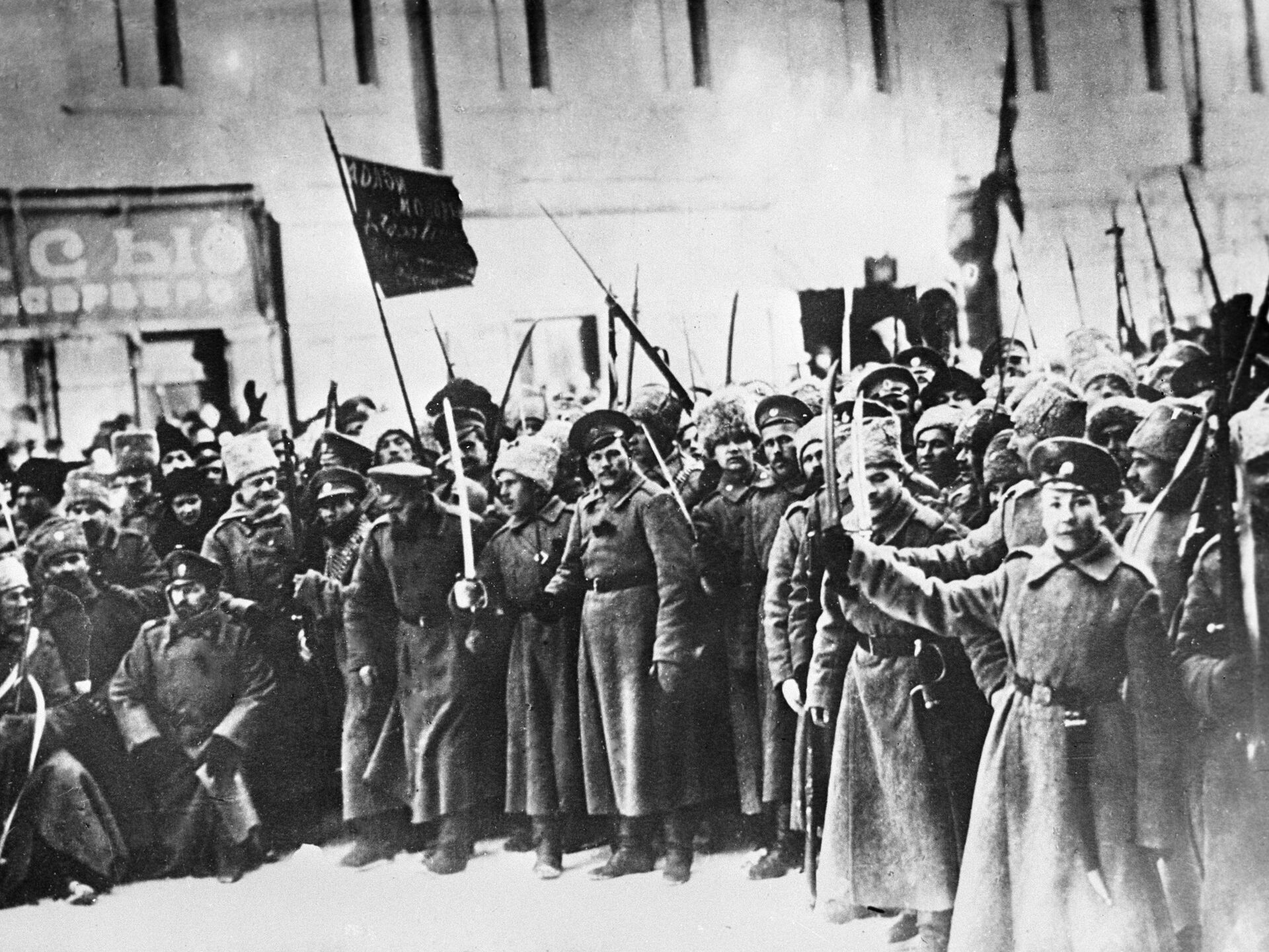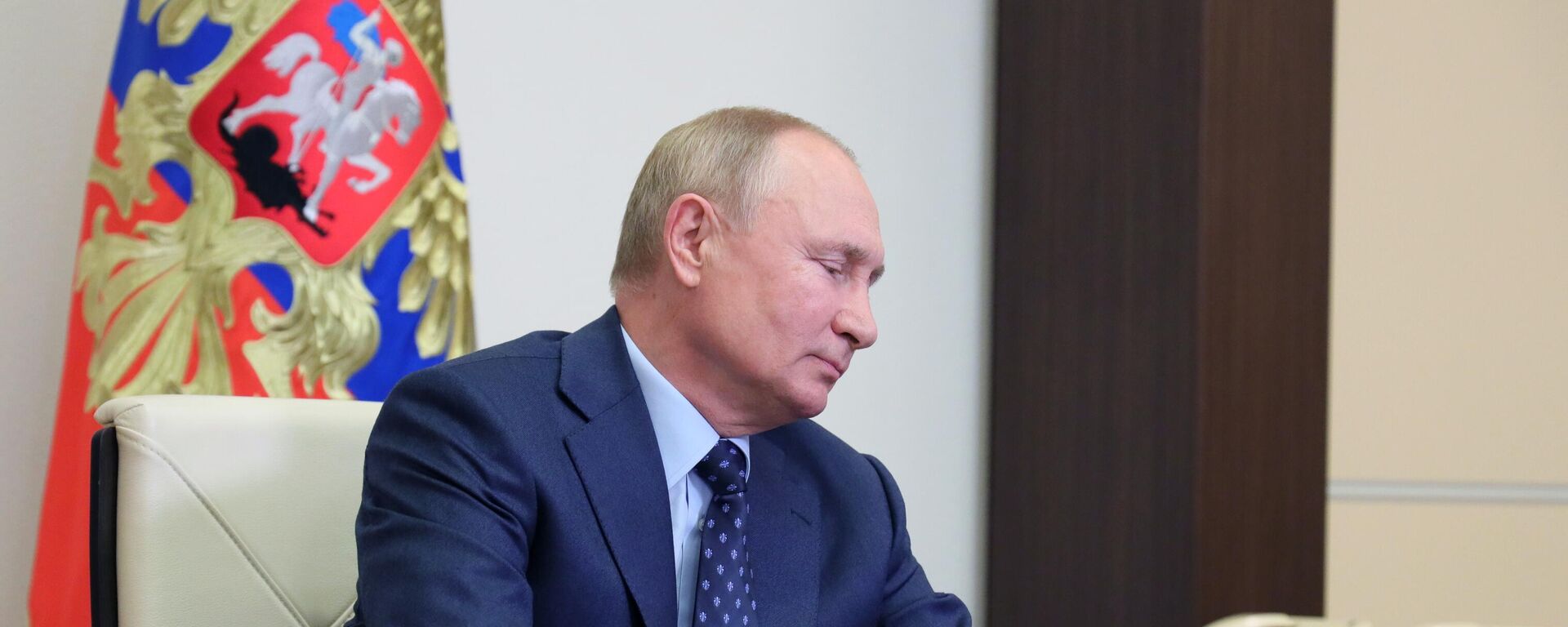Why Russia's 'Moderate Conservatism' Might Play Key Role in Resolving West's Ideological Standoff
13:33 GMT 29.10.2021 (Updated: 13:36 GMT 29.10.2021)
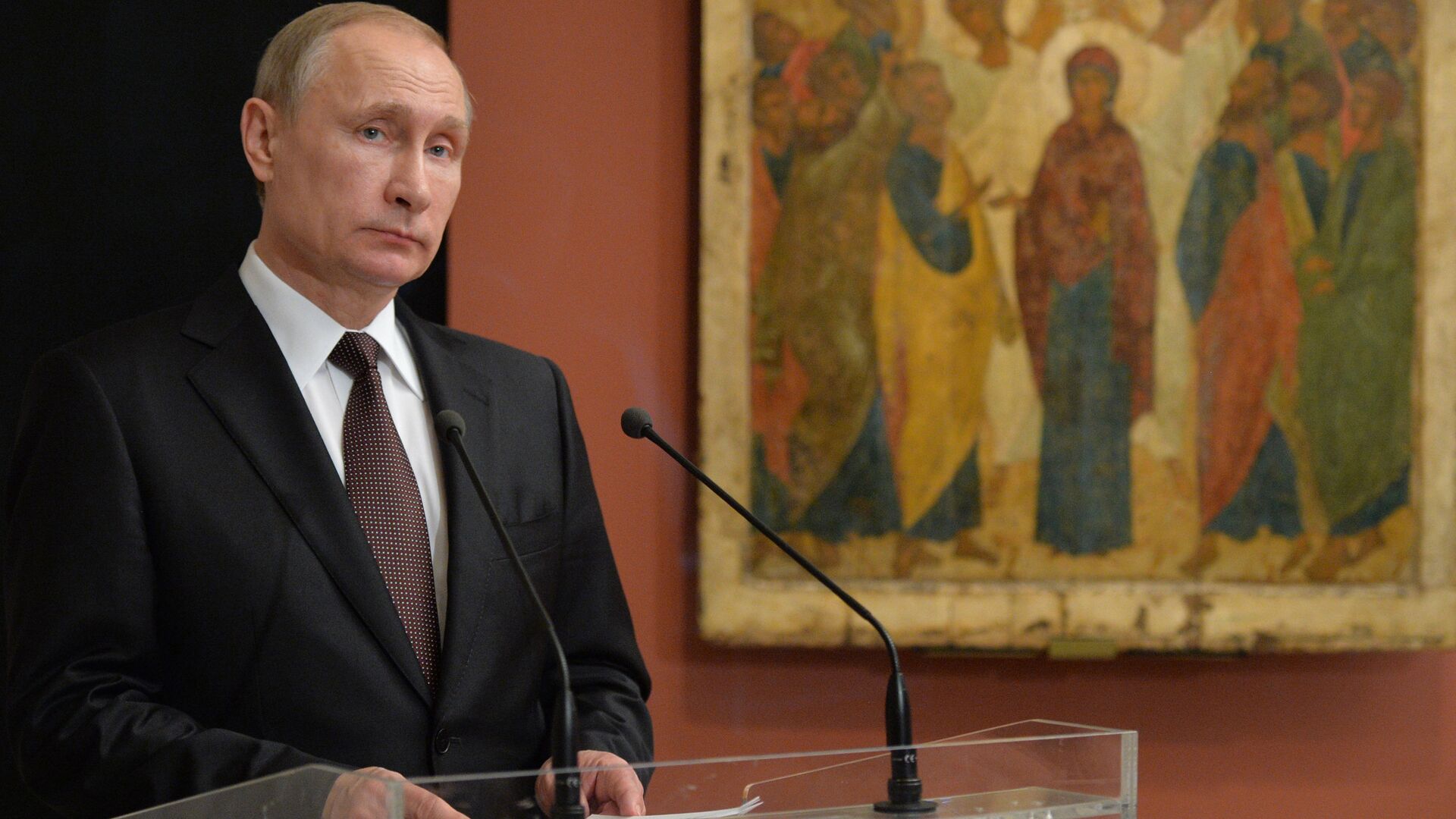
© Sputnik
/ Subscribe
The main message of Vladimir Putin's Valdai speech to the Western audience was that the former path of liberal hegemony has reached a dead end, says Norwegian Professor Glenn Diesen, adding that bloc-based politics and revolutionary liberalism can be overridden by recognising that Russia remains an inalienable part of Europe and the West.
Vladimir Putin's Valdai speech has reverberated through mainstream media and social networks, striking a cord with Western audiences of all stripes and triggering criticism, curiosity and praise. Professor Glenn Diesen from the University of South-Eastern Norway has explained what's so special about the Russian president's latest manifesto and its timing.
Sputnik: In 2007, Vladimir Putin delivered his landmark speech during the Munich Security Conference warning about the "uncontained hyper-use of force in international relations" by the US, Washington's global dominance, and the erosion of international law. What are the main differences between the Valdai address and the Munich speech? How has the world changed since 2007?
Glenn Diesen: In 2007, Putin cautioned that the unbalanced unipolar order legitimised by liberal hegemony was destabilising the international system. Putin’s comments were widely condemned in the West as aggressive but these comments merely reflected the basic assumptions of realist theory - When there is only one centre of power, there are no constraints and the dominant power will then expand to the detriment of common security.
Russian security concerns were defined by NATO expansionism towards Russian borders, NATO’s interventionist foreign policy, and the Western powers exempting themselves from the constraints of international law by instead legitimising the actions by referring to democracy and human rights. This contradicts the fundamental basic principle of a benign security architecture, which is to not enhance one’s own security at the expense of the security of other states. However, Russian was weak and largely standing on its own, so its security concerns could be ignored.
In 2021, the world looks very different. Power has shifted rapidly from the West to the East, primarily from the US to China, and the relative power of the West in the world continues to decline. Russia has recovered its former strength and has given up on its former Western-centric foreign policy by instead prioritising relations with the East.
We still have the legacy of the unipolar order in terms of NATO expansionism, NATO regime change and “humanitarian interventionism”, and the effort to replace international law with the Orwellian concept of a “rules-based international order” that does not consist of any rules. But the international distribution of power has changed and Russia can draw clear red lines against further NATO expansionism in Ukraine and interventionism in Syria, while Russia diversifies its economy away from the West to inoculate itself from the enduring sanctions.
While Putin’s speech in 2007 focused on the coming crisis caused by unipolarity, his Valdai speech in 2021 detailed how the era of liberal hegemony has now come to an end and the challenge of adapting to new realities. Western economies have "run out of steam” due to unsustainable debt, the concentration of wealth, inflated financial markets, and soon, uncontrollable inflation of the currency.
Furthermore, Putin criticised how the liberal ideology that justified the former hegemonic order has manifested itself in a revolutionary and destructive 'woke' ideology. The challenge ahead is thus to restore a balanced multipolar international system to restrain the “uncontained hyper use of force”, and recognise the need for conservative principles as an anchor of stability against revolutionary liberalism.
Sputnik: Following the Putin Valdai speech the Kremlin specified that Russia sees itself as an inalienable part of Europe. What European and Western forces, in general, are major addressees of Putin's speech? What aspects of the Russian president's Valdai address should Western audiences pay attention to in the first place?
Glenn Diesen: For such a speech there is both a domestic and international audience. The main message to the Western audience was that the former path of liberal hegemony has reached a dead end, and there is a need to change course. Putin applauded NATO’s withdrawal from Afghanistan, which signifies an important milestone to the end of Western unilateralism. Much of the speech focused on the internal disruptions in Western societies. Putin opined that the current trajectory of the West is not sustainable in terms of economic development and revolutionary liberalism, and these problems cannot be resolved by using Russia as an external bogeyman and thus doubling down of bloc-based politics.
Russia is a Eurasian state with a significant European territory, history and culture – so it is fair to say that Russia is an inalienable part of Europe. A common theme throughout Russia’s pre-communist history has been that the country has presented itself as the “real Europe” that champions conservative principles.
Much like a stable domestic society requires a balance between liberalism and conservatism, so does Russia offer balance in Europe. Russia is therefore not positioning itself against the West, merely against Western unilateralism. Implicitly, by recognising that Russia is an inalienable part of Europe, the West, we can overcome bloc-based politics and have a counter-weight to revolutionary liberalism. This is obviously a message that appeals to some strands of Western conservatives.
Sputnik: Putin's remarks about moderate conservatism and fake "progressivism" have resonated with American conservatives, who quoted the Russian president in social media and conservative media outlets. What do American and European conservatives think about Russia? What are the odds of Moscow building deeper ties with like-minded forces in the West despite an ongoing anti-Russia propaganda?
Glenn Diesen: After the Cold War, there was an effort in the West to recast the former capitalist-communist divide into an overly simplistic binary liberal-authoritarian divide in which Russia remains an adversary that must be excluded from Europe.
The problem is that the excesses of political and economic liberalism have decoupled liberalism from the nation-state, and many Western conservatives reject the neoliberal ideology. Subsequently, many Western conservatives now reject the liberal versus authoritarian divide, and instead view the main struggle as a cosmopolitan-globalism versus national-patriotism divide. Through this prism, Russia transitions from being an adversary to an ally.
While Russian conservatism obviously has a foreign policy component, it is a common mistake to dismiss it as being opportunistic. Russia has a natural inclination towards conservatism as an anti-dote for its revolutionary past. Conservatism is a philosophy of organic change whereas every nation develops in accordance with its own unique history, traditions and culture – which is imperative as the present rests on the legitimacy of the past.
A key problem for Russia is its revolutionary history, in which the past is uprooted to start all over. From a conservative perspective, Russia’s 1000-year long development has been catastrophic and fragmented as Kievan Rus, Mongol Russia, Muscovy Rus, Peter the Great’s Russia, Soviet Russia, and liberal Russia were all periods that purged the era before it. This creates profound divisions and makes the peaceful transfer of power difficult if the political opposition envisions a new Russia incompatible with current Russia.
Russian conservatism is thus a philosophy of unity by seeking to establish a continuous national narrative that recognises that all the former periods are part of what Russia is today. Putin condemned the revolutionary Bolsheviks who attempted to purge Russia’s own past, but also recognised that not everything in the Soviet Union was terrible and there is much of the history that can be salvaged.
I think this is an important idea, as purging the Soviet past is in itself a revolutionary act that only continues to fragment Russians into what the “real Russia” represents. Russian conservatism can be said to be successful when a shared national consciousness emerges in which the communists embrace the societal value of the Orthodox Church and liberals accept the principle of gradual change instead of starting again in year zero.
Putin explicitly compared the revolutionary mood in the West with the Bolshevik Revolution in Russia’s own past as the past is purged to give way to new social realities untainted by the flaws of history. This message predictably was well-received among many American conservatives.
Sputnik: What's your prognosis on the deepening struggle between "conservatives" and "liberal globalists" in the US and the EU and what role could Russia play in this cultural and ideological standoff?
Glenn Diesen: The problem in the West is that liberalism has decoupled from the nation-state, which dismantles the shared platform of liberals and conservatives. The nation-state is largely a conservative construct in which the distinctive nation reproduces its culture, faith, family and traditions. Yet, the stability of the conservative nation-state has made it the most successful vessel to advance liberal ideals in which the individual is not constrained by culture, faith and traditions.
States prosper when they can position themselves between the group and the individual, between continuity and change, and between the past and the future. Putin is therefore deeply critical of the current cultural revolution in the West that aims to liberate itself from its own history, culture, traditions, faith and even biological realities such as gender. This attempt to create entirely new social realities will destabilize the West and fragment their societies.
As we now see in the US, the liberals and conservatives view the other less and less as a political opposition and more and more as an enemy. This is a dangerous path that must be reversed by recognizing a society needs both walls and bridges, it needs both conservatism and liberalism.
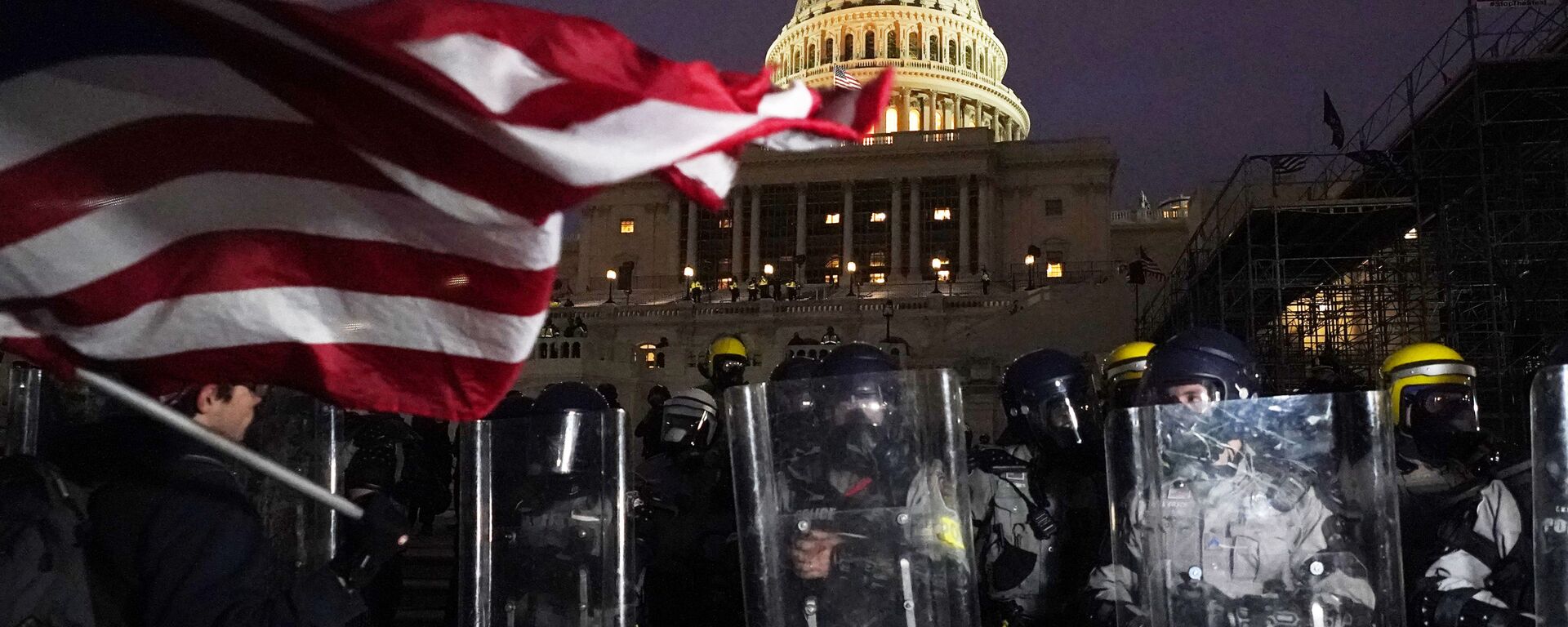
28 October 2021, 16:08 GMT
Russian conservatism unavoidably places Russia in the middle of the Western ideological standoff. The “liberal globalists” envision a subject-object relationship with Russia in which the West is the teacher and Russia is the civilisational apprentice that attempts to remake itself in the West’s image. Russia adamantly rejects this role and the liberal excesses of the West. While this creates ire among the liberal globalists, the blatant rejection of the liberal dogmas creates support among many Western conservatives.
The reason is that the values of many Western societies are fundamentally reorganised and it is occurring without intellectual opposition. The changes are not advanced based on rational debate, rather they are rammed through as an issue of right versus wrong, tolerance versus hate, or the virtuous versus those who should not be allowed to keep their jobs. While Putin mocking the absurdity of renaming “breast milk” as “human milk” may seem to be low-hanging fruit, it is probably refreshing for many conservatives to see a state leader stating what they consider obvious.
Lastly, it must be pointed out that the Russian bogeyman has been used as an instrument by the American liberals to undermine conservatives.
Over the past years, Trump was undermined by those portraying him as a Russian agent, there was censorship of the Hunter Biden laptop scandal during the election by those claiming it was Russian disinformation, and then Trump was condemned for not hitting back at Russia when reports emerged that Russia had put bounties on US soldiers in Afghanistan. All of these conspiracy theories have been revealed as being fraudulent, and it might incentivise some conservatives to question if the ideological standoff with Russia has largely been manufactured.
Glenn Diesen is the author of "Europe as the Western Peninsula of Greater Eurasia: Geoeconomic Regions in a Multipolar World" (2021); "The Return of Eurasia" (2021); "Russian Conservatism: Managing Change under Permanent Revolution" (2021), "Great Power Politics in the Fourth Industrial Revolution: The Geoeconomics of Technological Sovereignty" (2021), "Russia in a Changing World" (2020), "The Decay of Western Civilisation and Resurgence of Russia: Between Gemeinschaft and Gesellschaft" (2018), and "Russia's Geoeconomic Strategy for a Greater Eurasia (Rethinking Asia and International Relations)" (2017).

